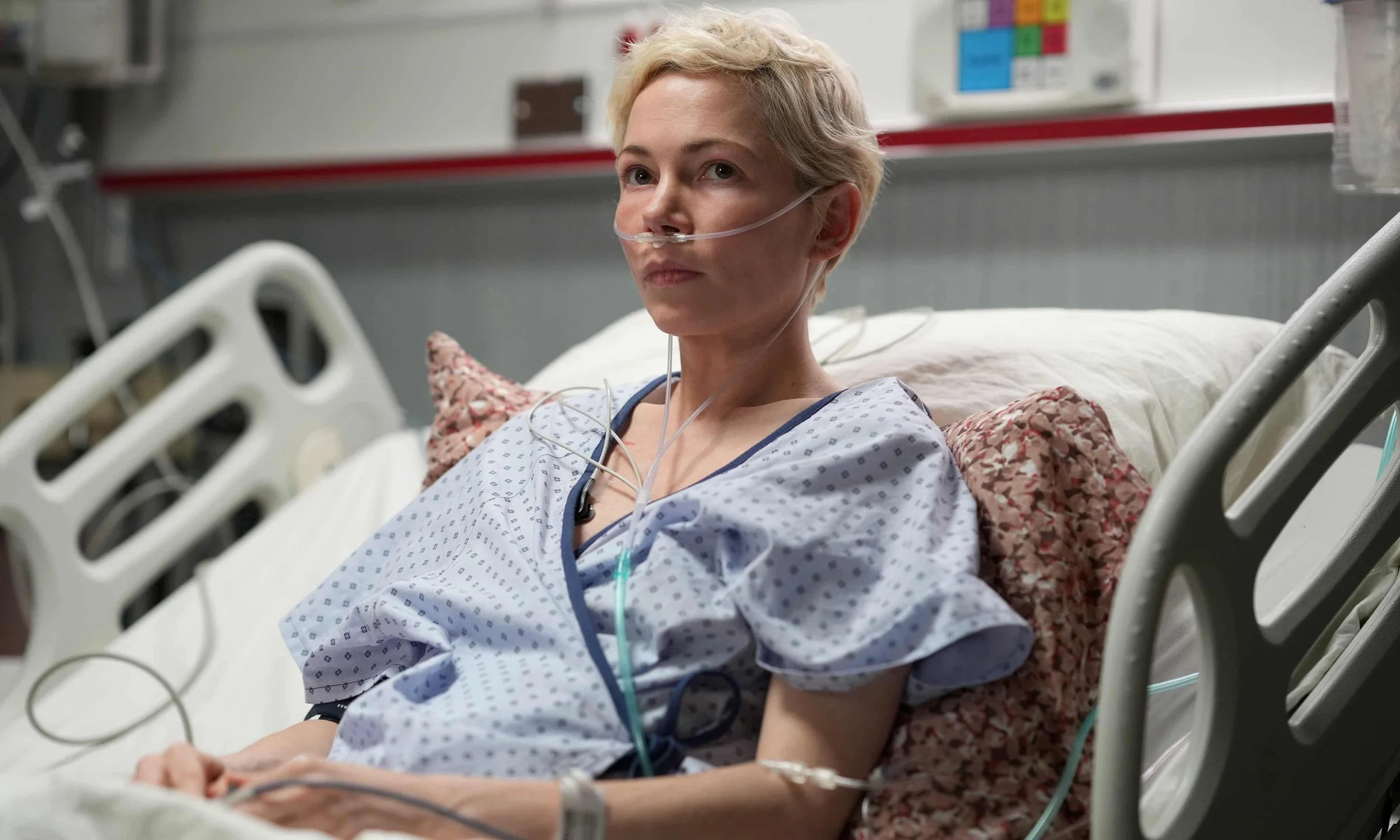Why the ‘Dying for Sex’ Writers Room Was a Transformative Experience for Keisha Zollar
Elevate Collective member Keisha Zollar discusses her experience working on the Emmy-nominated FX limited series and writing about death, sex, and disability for TV.
Michelle Williams Credit: Sarah Shatz/FX
By Inevitable Foundation Staff
“Being in that room was one of the best, most life-changing experiences,” says 2022 Elevate Collective Member Keisha Zollar about her time in the writers' room on Hulu’s Dying for Sex.
Released in April, the eight-episode series stars Michelle Williams as Molly, a woman who discovers she has terminal cancer in her 40s, prompting her to leave her decade-long marriage in search of an orgasm. Based on the life and death of Molly Kochan, who died at 45 from metastatic breast cancer in 2019, Zollar says, the series’ writers room “wanted to paint somebody who was on a quest for pleasure on her own terms at the end of her life.”
For the supervising producer, who also wrote the third episode “Feelings Can Become Amplified,” the series laid bare many of the connections between sex, death, and disability that people — both individually and collectively — are often too afraid to talk about. That includes power dynamics, intimacy beyond penetrative sex, and that “consent isn't just about sex.”
“We were able to have a conversation about that, so people who may not have engaged with those ideas had a better understanding of them,” she says. “Like [Molly] not being as interested in penetrative sex had a lot to do with her body, being disabled, releasing the shame of that, and being allowed to be uninterested in that.”
“We talked about all the different ways pleasure exists — the boundaries and psychology — and what it looks like,” she later adds. “We talked about how cancer bodies experience different things. In my episode, we talked about specifically how some medicines elevate and change mood, or heighten things, and that's still a very real experience.”
As the show’s title suggests, sex abounds, but in ways that have rarely cleared executives or censors. It’s a level of nuance and honesty that has left Zollar wondering “how this got on TV.”
“[The show] is about one woman owning everything and figuring out how she needed to make sure she was listened to in her life and taken care of to fully participate in life,” she continues. “This show is a transformative exploration of what bodies are, can do, and how ethereal they are.”
Zollar says that some of the most compelling creative moments tied to the series were those that revealed how important conversations about the ability to control treatment and care (including pleasure) of one’s body are, all the way up to one’s death.
“One of the things I appreciated in the final episodes was explaining the dying process, which is hard and scary for a lot of people,” she says. “When you aren't able to preemptively have these conversations, you don't know what your choices are, and a lot of people don't know what their choices are when it comes to disability or towards the end of life. So people make desperate decisions out of fear.”
To tell this dramatized story of Kochan’s journey on-screen, the writers leaned into a number of resources, including the Wondery podcast of the same name. “In aspects of the podcast, they talk about how a lot of the people [Molly] had experiences with found their sense of healing because when someone engages with you, and it's not about shame, and it's a bunch of people who are consenting, the energy changes.”
They also leaned heavily into experts and research material, says Zollar. “We read a ton of books, a ton of literature about pleasure and stimulation and people's boundaries, and we had intimacy coordinators from day one in the writers' room. We talked to a lot of cancer experts. We talked to palliative care social workers. We spoke to someone who is stage four about the reality of I will die, and it's not if, it's when,” she explains. “There was always, intellectually, a curiosity and a respect from day one.”
“What I think was so transformative, especially while in that room, is I became so comfortable with cancer, disability, sex, how to adapt pleasure for a changing body, the complications of death, and care — because it's also a care story,” Zollar tells Inevitable Insider. “We've gotten some great responses from doctors who want and need to do better, and patients who feel like they can advocate for themselves better.”
